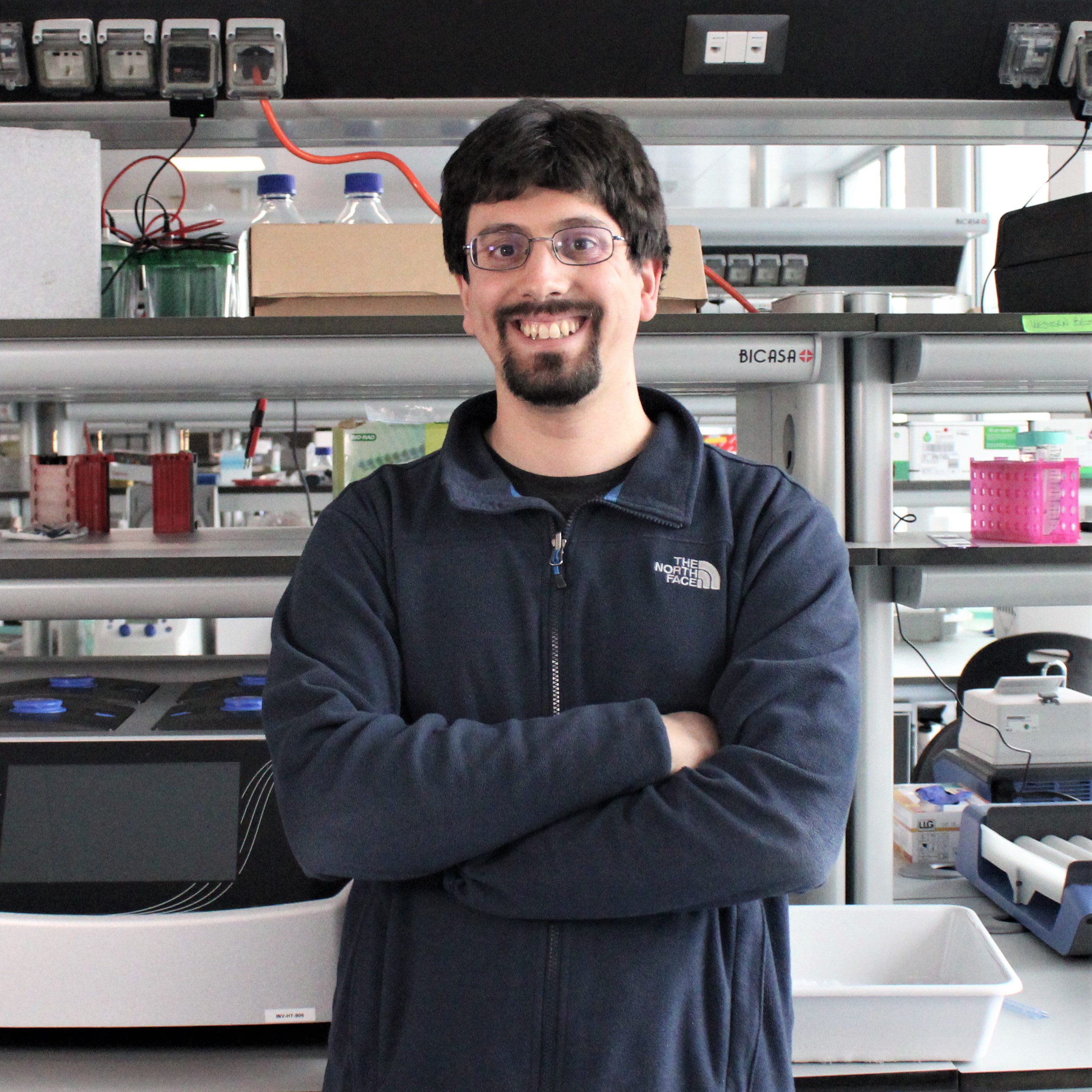
Andrea Graziadei
- Senior Manager - Structural Proteomics, National Facility for Structural Biology
Andrea Graziadei is a structural biologist and structural bioinformatician specializing in integrative modelling and crosslinking mass spectrometry.
SHORT CV:
Since 2022 Senior Manager, structural proteomics SSU – Human Technopole
2019-2022 PostDoc – Technische Universität Berlin (Berlin, DE)
Mentor: Prof. Juri Rappsilber
2019 PhD in structural biology – European Molecular Biology Laboratory, (Heidelberg, DE)
Mentor: Dr. Teresa Carlomagno
Contacts
Publications
-
08/2024 - Cell
Extensive structural rearrangement of intraflagellar transport trains underpins bidirectional cargo transport
Bidirectional transport in cilia is carried out by polymers of the IFTA and IFTB protein complexes, called anterograde and retrograde intraflagellar transport (IFT) trains. Anterograde trains deliver cargoes from the cell to the cilium tip, then convert into retrograde trains for cargo export. We set out to understand how the IFT complexes can perform these two […]
-
08/2024 - Cell
Extensive structural rearrangement of intraflagellar transport trains underpins bidirectional cargo transport
Bidirectional transport in cilia is carried out by polymers of the IFTA and IFTB protein complexes, called anterograde and retrograde intraflagellar transport (IFT) trains. Anterograde trains deliver cargoes from the cell to the cilium tip, then convert into retrograde trains for cargo export. We set out to understand how the IFT complexes can perform these two […]
-
03/2023 - Nature Biotechnology
Protein structure prediction with in-cell photo-crosslinking mass spectrometry and deep learning
While AlphaFold2 can predict accurate protein structures from the primary sequence, challenges remain for proteins that undergo conformational changes or for which few homologous sequences are known. Here we introduce AlphaLink, a modified version of the AlphaFold2 algorithm that incorporates experimental distance restraint information into its network architecture. By employing sparse experimental contacts as anchor […]
-
02/2023 - Molecular Systems Biology
Protein complexes in cells by AI-assisted structural proteomics
Accurately modeling the structures of proteins and their complexes using artificial intelligence is revolutionizing molecular biology. Experimental data enable a candidate-based approach to systematically model novel protein assemblies. Here, we use a combination of in-cell crosslinking mass spectrometry and co-fractionation mass spectrometry (CoFrac-MS) to identify protein–protein interactions in the model Gram-positive bacterium Bacillus subtilis. We show […]
-
01/2022 - Structure
Leveraging crosslinking mass spectrometry in structural and cell biology
Crosslinking mass spectrometry (crosslinking-MS) is a versatile tool providing structural insights into protein conformation and protein-protein interactions. Its medium-resolution residue-residue distance restraints have been used to validate protein structures proposed by other methods and have helped derive models of protein complexes by integrative structural biology approaches. The use of crosslinking-MS in integrative approaches is underpinned by […]